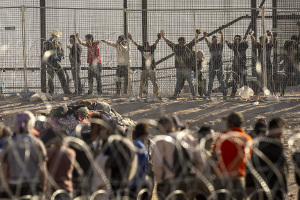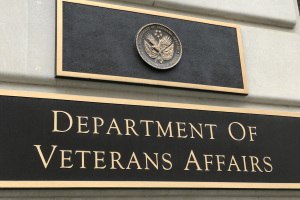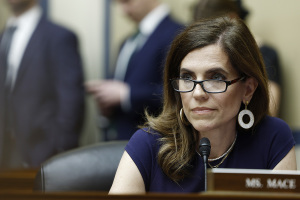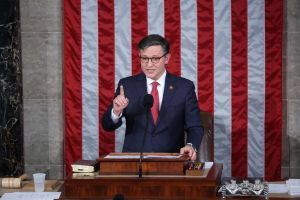Supreme Court rejects Apache appeal seeking to protect Oak Flat; Gorsuch calls it 'grievous mistake'

The U.S. Supreme Court has declined to hear a religious freedom appeal from Native American activists seeking to protect one of their sacred religious sites, a decision that one Supreme Court justice has derided as a "grievous mistake."
In an order published Tuesday, the court declined to issue a writ of certiorari in the case of Apache Stronghold v. United States, et al., a case some Christian conservative advocacy groups urged the court to hear.
Justices Clarence Thomas and Neil Gorsuch, two of the more conservative justices on the court, would have issued the writ of certiorari, while Justice Samuel Alito, another conservative justice, did not take part in the discussion.
Gorsuch penned a lengthy dissent expressing his disagreement with the court's decision.
"For centuries, Western Apaches have worshipped at Chí’chil Biłdagoteel, or Oak Flat," he wrote. "They consider the site a sacred and 'direct corridor to the Creator.'"
Identifying Oak Flat as "a place where tribal members conduct 'religious ceremonies that cannot take place elsewhere,'" Gorsuch lamented that "the government and a mining conglomerate want to turn Oak Flat into a massive hole in the ground."
He noted that while the Western Apaches tried using the Religious Freedom Restoration Act to stop the redevelopment of Oak Flat into a copper mine, the 9th U.S. Circuit Court of Appeals determined that it does "not impose a substantial burden on religious exercise."
Tuesday's denial of a writ of certiorari means the Ninth Circuit decision will stand.
"While this Court enjoys the power to choose which cases it will hear, its decision to shuffle this case off our docket without a full airing is a grievous mistake — one with consequences that threaten to reverberate for generations," Gorsuch concluded. "Just imagine if the government sought to demolish a historic cathedral on so questionable a chain of legal reasoning. I have no doubt that we would find that case worth our time."
"Faced with the government's plan to destroy an ancient site of tribal worship, we owe the Apaches no less," Gorsuch continued. "They may live far from Washington, D. C., and their history and religious practices may be unfamiliar to many. But that should make no difference."
The Becket Fund for Religious Liberty, which has represented the Western Apahces throughout their litigation, decried the development in a statement Tuesday.
"It is hard to imagine a more brazen attack on faith than blasting the birthplace of Apache religion into a gaping crater," said Becket Senior Counsel and Vice President Luke Goodrich.
"The Court's refusal to halt the destruction is a tragic departure from its strong record of defending religious freedom. We will do everything in our power to ensure that the Apaches can continue worshiping at Oak Flat as they have for generations," he vowed.
Wendsler Nosie of Apache Stronghold declared: "We will never stop fighting — nothing will deter us from protecting Oak Flat from destruction."
Although he acknowledged that the court's decision was a "heavy blow," Nosie expressed optimism that "our struggle is far from over." He called on the U.S. Congress to "take decisive action to stop this injustice while we press forward in the courts."
As highlighted in the statement published by Becket Monday, the effort to protect Oak Flat dates back to January 2021.
Several Christian groups advocated on behalf of the Apache Stronghold, including the mainline Protestant denominations, the U.S. Conference of Catholic Bishops, and a coalition of military chaplains. Among the parties that submitted briefs supporting the Apache case are the Christian conservative grassroots group Faith & Freedom Coalition, the Religious Freedom Institute and the right-leaning think tank Ethics and Public Policy Center.
"RFRA recognizes that religious practice is, in many cases, more valuable than government plans," reads an October amicus brief filed for conservative groups Young Americas Foundation, Advancing American Freedom, the Faith & Freedom Coalition and the Family Police Alliance.
"Even where a claimant loses on a RFRA claim, the compelling interest test holds the government accountable to finding the least intrusive method to achieving their interest. Where instinct might be to say 'government can do what it wants with its own land,' RFRA says 'not if ...' The government’s attempt to evade strict scrutiny belies any logical legal position and is simply 'an objection to RFRA itself.'"
Ryan Foley is a reporter for The Christian Post. He can be reached at: ryan.foley@christianpost.com





























